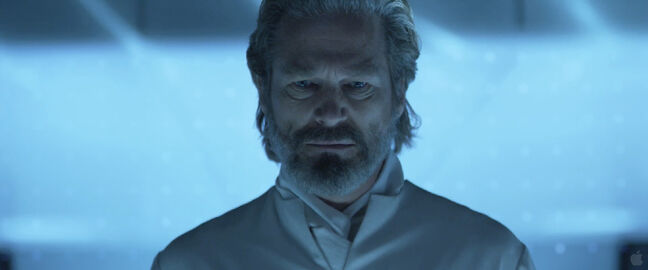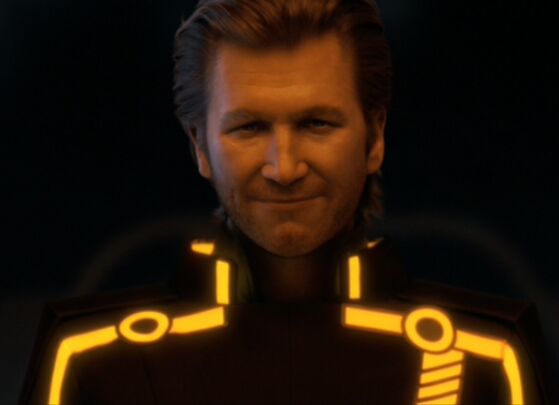This post will reflect a bit more on the religious overtones, symbolism and message of TRON Legacy, and in doing so will discuss details of the story. And so if you have not seen the movie and are trying to avoid SPOILERS then you should bookmark this post and come back to it after you’ve had a chance to see the movie.
TRON Legacy, much like the original TRON movie, both makes use of an subverts or inverts symbols and ideas from the Christian tradition. In both films, humans have created a technological world of programs, and they are thus regarded as in essence deities by the programs that they made. In TRON Legacy, however, there is a division in the Grid, the world Kevin Flynn created: he has become trapped in that world, and while some kneel prayerfully in his presence, others view him as a “false deity” and are in rebellion against their creator.
In a fashion that is both similar to and different from Gnostic myths, Flynn begins his creation process by bringing Clu 2 into existence. Clu is Flynn’s mirror image, and is commissioned with the task of making a perfect world. Flynn, Clu and Tron serve as a “trinity” of creators, working together to fashion a new digital world.
Within this realm, when the conditions are right, a new form of life emerges. These Isomorphic Algorithms or ISOs are not strictly speaking Flynn’s creation. They emerge spontaneously within the digital realm he created, as a new and surprising form of life. Flynn calls it a “miracle.” But in TRON Legacy not all “miracles” are direct actions of the creator.
Clu stages a coup because he sees the unpredictability of the ISOs and the directions the Grid is taking as antithetical to the perfect world he was commissioned to create. And he carries out a purge, attempting to eliminate the ISOs.
In my class on Revelation this semester, we discussed the intriguing and puzzling nature of the book’s ending, which has those who are regarded as immoral excluded from the New Jerusalem. While the book had seemed earlier to be moving towards the elimination of evil and chaos from the new heavens and new earth, consigning it all to the lake of fire, the ending hints that perhaps one cannot have continued human existence without at least the continued possibility of imperfection and failure as well.
At this point, TRON Legacy diverges dramatically from popular Christian thought. The creator, Flynn, does not simply condemn and punish his creation, Clu, made in his own image and likeness. He recognizes that the shortcomings of Clu are a reflection of himself as creator. In fact, Clu’s vision of “perfection” mirrored Flynn’s own at the time he created Clu. But what he came to realize later is that such ideals of perfection in fact pale in comparison with the reality of human life, with all its flaws and failures.
And so the ending of the movie departs dramatically and powerfully from the Christian script. Unlike the Father who sends his Son into the world to sacrifice himself, Flynn behaves as we would expect a human father to: he sacrifices himself to save his son.
Visions of a perfect existence abound in religious traditions. TRON Legacy challenges us to realize that such abstract theoretical concepts can be at odds with, and prevent us from recognizing, the beauty and “perfection” that is right in front of us. But even within the Biblical tradition, there are hints that static perfection is not an ideal nor a realistic aim. In Genesis, rebellion against authority and loss of innocence can perhaps be understood as inevitable components of human existence. And in Revelation, when Eden is supposedly restored, the potential for human failure remains. And so it offers a vision of a city whose gates never close, and from which it is possible to exclude oneself, but to which it is also always possible to return.
Like its predecessor, TRON Legacy explores religious themes in interesting and provocative ways. I hope that many will utilize the opportunity the movie offers to reflect on these topics.















